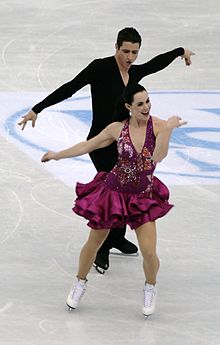I suppose I should wish everyone a joyous and restful Family Day, but I have a strong, almost knee-jerk, reaction to State-mandated holidays, regardless of their theme or intention, as I wrote on this day last year. But, since it is a day off for everyone, enjoy the time with family, friends, or just going solo, and be sure to pray for families, beleaguered in today’s ironically anti-family climate.
And speaking of families, yet another report is out on the coming effects of technology on employment, as a coffee shop in San Francisco now has a robot barista (or is that baristo?), which can serve 120 steaming cups of java per hour. First baristas, then barristers, as much of the work of lawyers can also be automated, and soon will be. After all, the knowledge of precedent and case law in a computer with near-perfect retention and recall is hard to beat. They are also talking about real-life robo-cops, who will apply the law with justice and vigour, with no squeamishness, and they don’t really care about shooting or getting shot, in the most strict sense of ‘care’. And the list of jobs continues: Assembly lines (many already largely automated, perhaps rightly so); truck and cab drivers; any information processing; office and cleaning work; bank tellers and cashiers; alas, they may also come for musicians and teachers.
In all of this, there is a human element that is not only missing, but required: Conversation, warmth, empathy, a human face and smile, or even a grimace, what is both best and worst about the fallibility of ‘human nature’ will be gone, and, not least, our relationship with the ‘other’, upon which our personhood is ultimately based.
Pope John Paul II, in his masterly 1981 encyclical Laborem Exercens, on the dignity of human work, exalts what is good about technology in reference to Man, insofar as it “facilitates his work, perfects, accelerates and augments” his labour and its fruit, leading “to an increase in the quantity of things produced by work, and in many cases improves their quality”.
But the insightful Pope, who knew a thing or two about both manual and intellectual labour, also warned, in prophetic words, that “in some instances, technology can cease to be man’s ally and become almost his enemy, as when the mechanization of work “supplants” him, taking away all personal satisfaction and the incentive to creativity and responsibility, when it deprives many workers of their previous employment, or when, through exalting the machine, it reduces man to the status of its slave”.
Ah, yes, slaves of technology, of the internet, smartphones, video games, films, YouTube, FaceBook.
With the machines doing all the work, what else are people to do?
Well, read, study, pray, converse, learn and perform music, get outdoors and enjoy God’s creation, raise children, or even brew some home-made coffee…
But, at the same time, to perfect himself, man also has to ‘work’ in the objective sense, to shape some aspect of the world in accord with his own personality, and make it bear fruit in some way, shape or form, whether that be bagging groceries, driving a truck, teaching literature, or performing intricate brain surgery.
John Paul taught that ‘work is for man, not man for work’, and we should ensure that the possibility, even the right, of working in the world for a remunerative wage, especially for fathers providing for a wife and children, continues, even if technology can do certain works in some way ‘better’. Profit and efficiency are not the only factors in the moral evaluation of employment.
Which brings us back to Family Day, put in by a Premier imbued with socialism, whose successor is bringing to perfection, or rather imperfection, the sad and tragic road he had begun.
So fight for the right to work, to provide, to bend the world back in some small way in the right direction.
And, on that note of bending, a final word on the technology which we call ‘clothing’: It seems there was a ‘wardrobe’ malfunction in a mixed-doubles figure-skating routine recently, akin to Janet Jackson’s 2004 Super Bowl snafu.
Is it just me, or is the whole figure skating thing a ‘wardrobe’ malfunction? Sure, there is intense athleticism, training and feats on ice that normal humans cannot hope ever to emulate in the faintest manner, but I cannot help but think that a large part of its popularity stems from the skimpiness of the dresses on the female component of the mix, wherein one scarcely needs a malfunction for, what might the term be, a misappropriation of modesty. An anonymous android could do the ‘man’s’ part, and I think not many would care (although there is also some intrigue in the implied sexual frisson between the, ahem, pairs, many of whom are couples in real life; and, if not, and excuse my political incorrectness, but why would any other man allow his woman to be so manhandled by another man? Is this just me?)
But, given current mores on dressing even in normal society, and our current hyper-sensitive climate, I think may be more-or-less a losing or lost battle. The solution is definitely not figure-skating-burkas; rather, just a tad more awareness of the effects of the beauty of the female body, and how our, and by that I mean men’s, awareness of that beauty in the state of original sin (compounded by many other factors) is now so tainted.
As John Paul II put it as Karol Wojtyla, from his 1960 Love and Responsibility:
the evolution of modesty in woman requires some initial insight into the male psychology
A ‘psychology’, I might add, that is no longer in its integral, prelapsarian state. There is a reason why the male of the figure-skating pair is more or less fully and respectably clothed.
Of course, athletic dress is not the biggest of our problems in media, as various cable shows and films make all too evident. But it is there, and in vogue. Lest we forget the whole notion of safeguarding purity, there must be some modest way of signifying the great gift of female beauty and form without, well, displaying it all so blatantly.
Holy Family, intercede for us.












